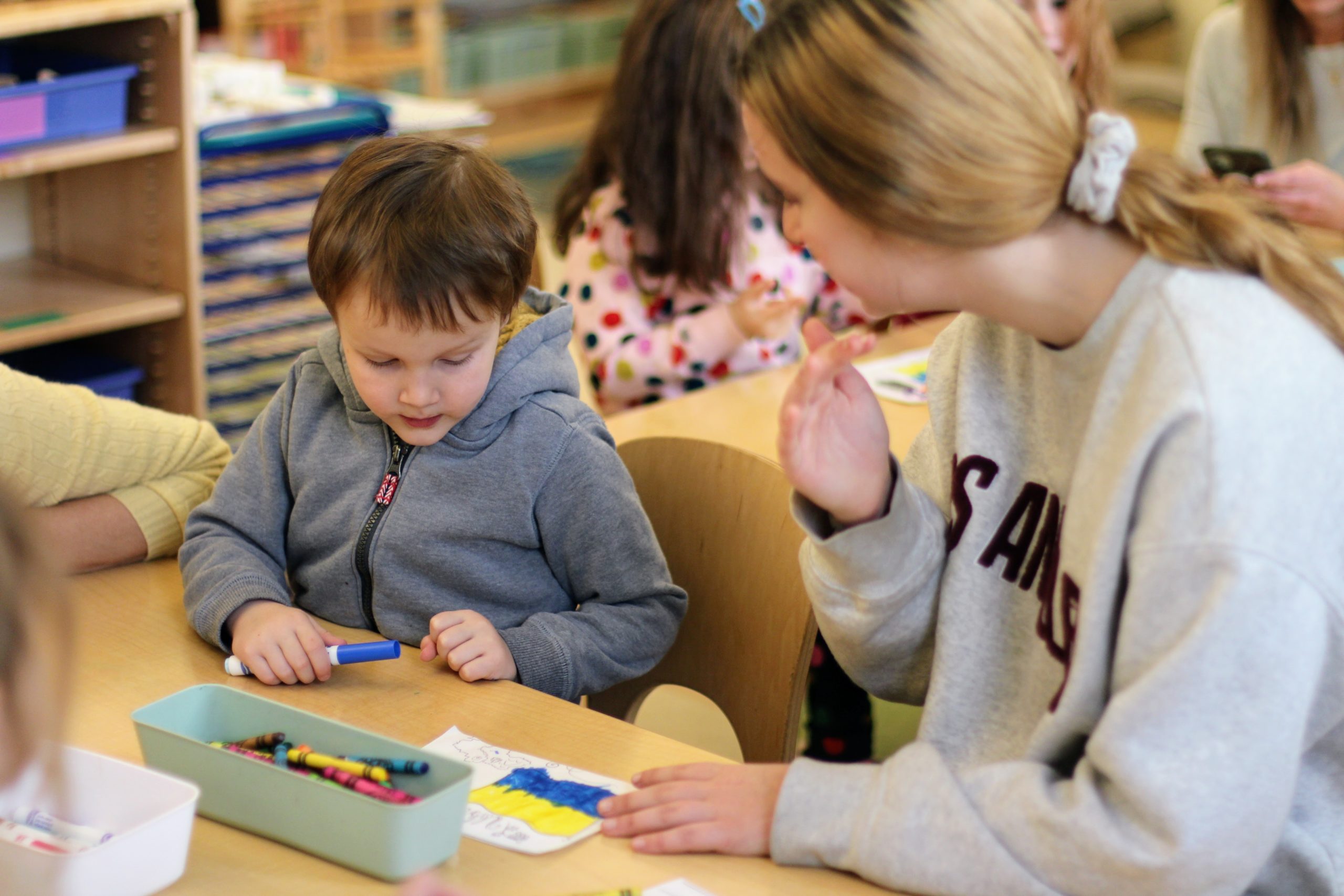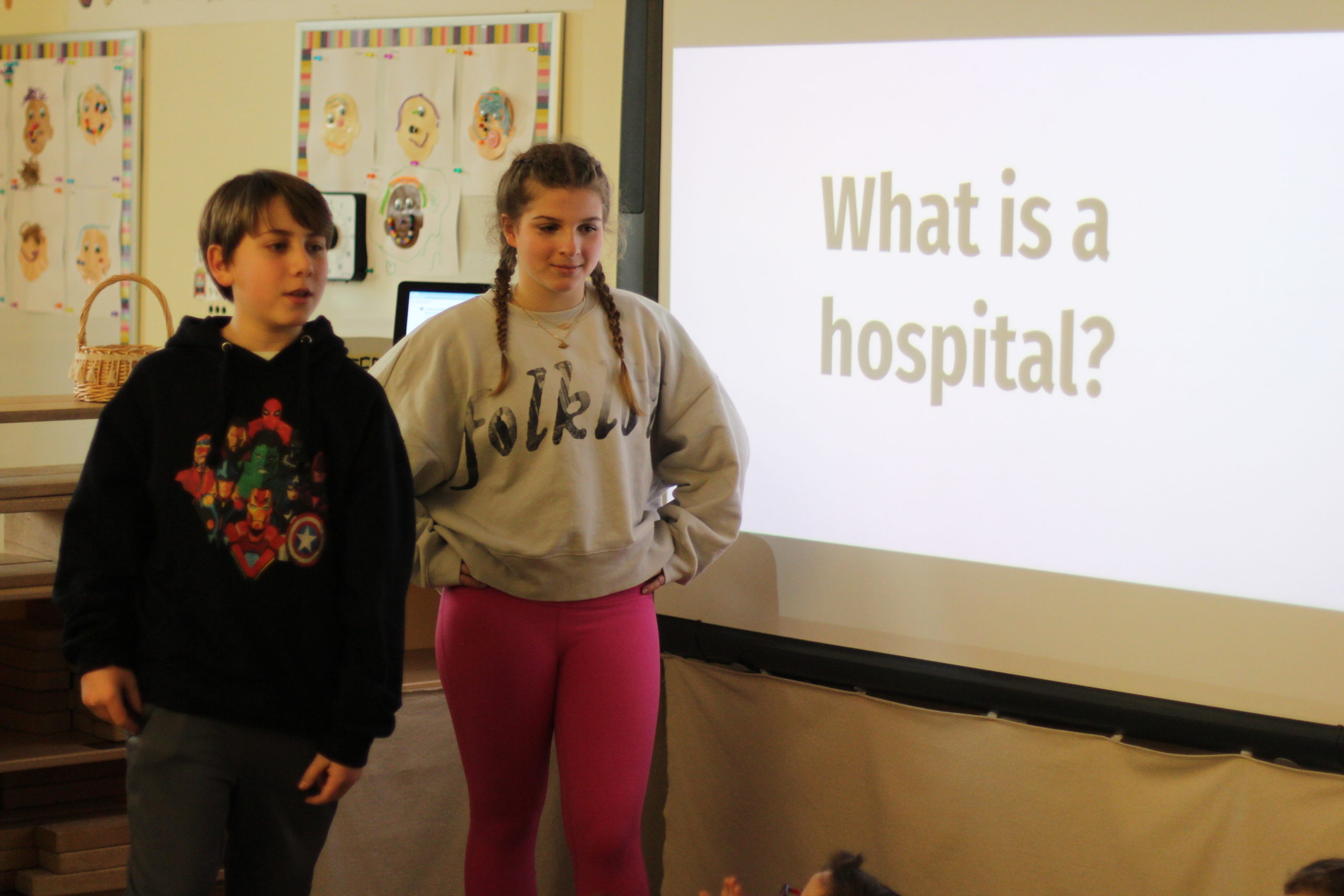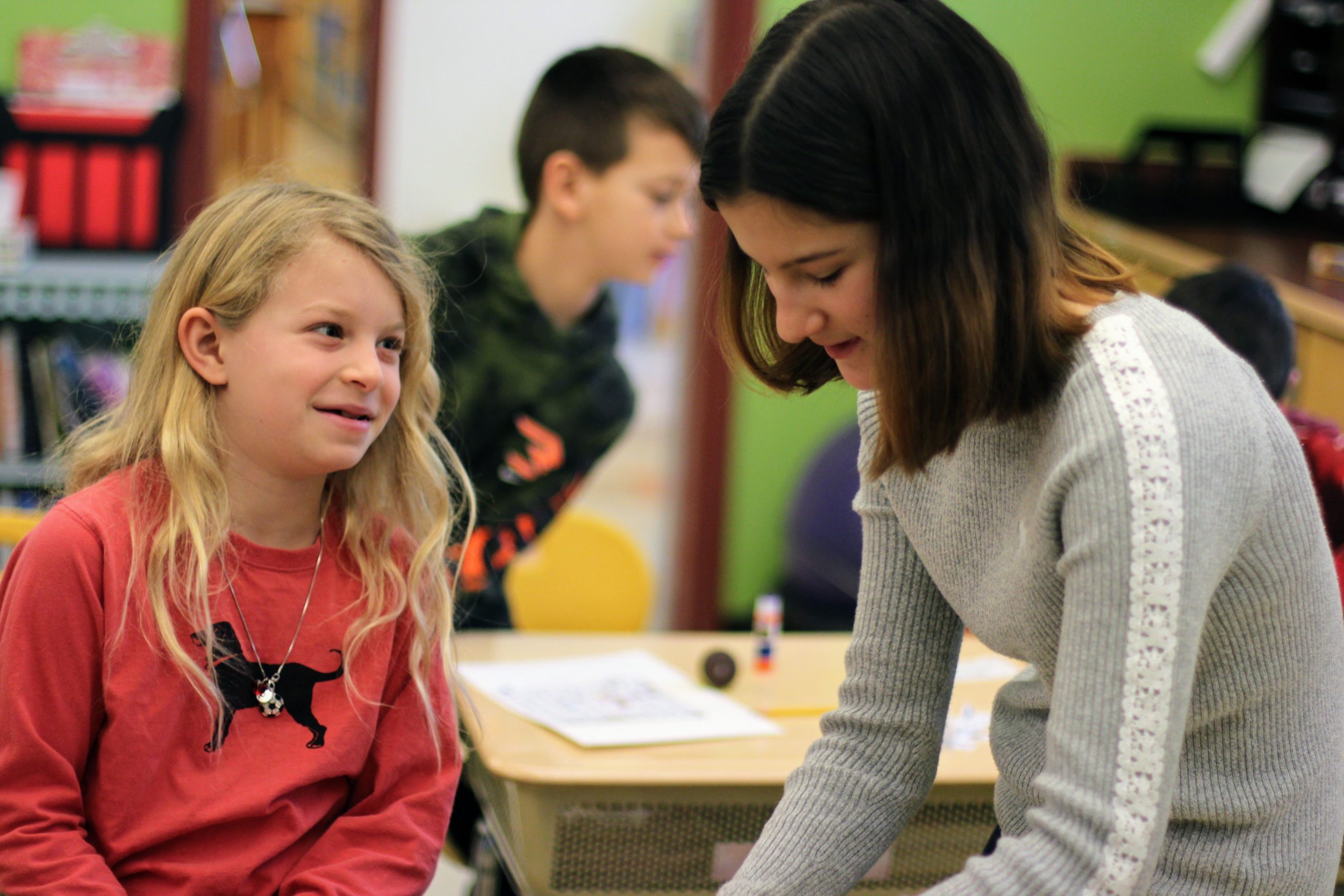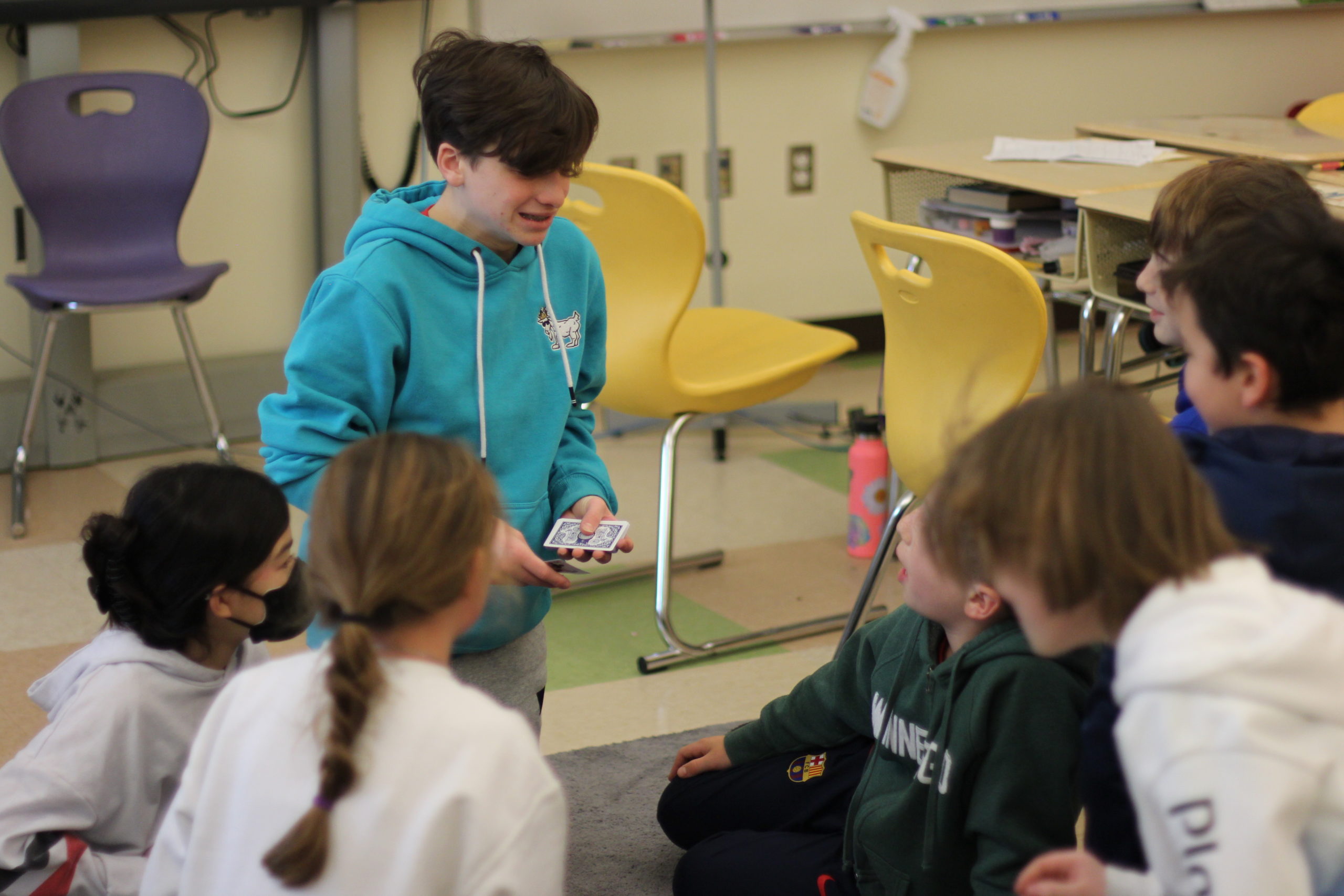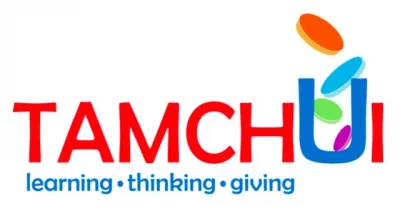
Monday, January 23 marked the start of Tamchui 2022-23’s education week.
Every year, the entire Rashi community spends weeks on a unique social justice initiative known as Tamchui (Aramaic for “community collection pot”), in which students and teachers learn about and work closely with six nonprofit organizations that support three global issues that Rashi students feel are important. This year, those issues are 1) access to healthcare, 2) Ukrainian war refugees, and 3) women’s health.
During education week, Rashi’s Director of Social Justice Stephanie Rotsky and Social Justice Educator Sarah Monderer partner with our Middle School students, spending time teaching each Lower School grade about their class’s topic and organizations. They engage in fun activities and thoughtful, reflective conversations. Grade 6 introduced their younger peers to the challenges of healthcare affordability and access; Grade 7 taught about Ukrainian refugees; and Grade 8 led lessons about women’s health.
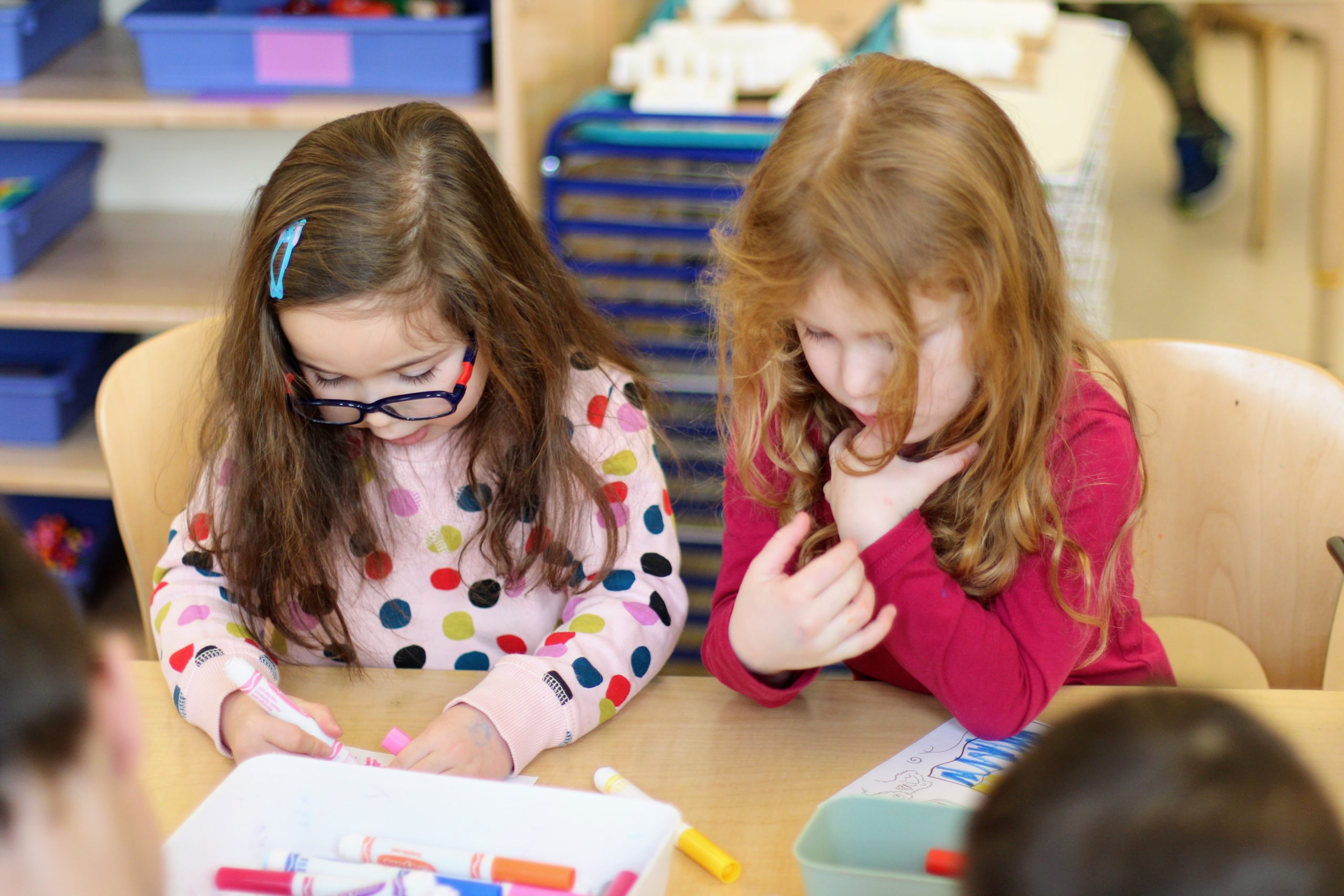
Pre-Kindergartners participated in immersive learning experiences, coloring pictures relating to their lessons and using blocks and toys around their classroom to build a large play hospital. They listened closely to their Middle School mentors, enthusiastically asking questions and sharing stories of their own.
Kindergarten students also had a blast meeting with Middle School teachers. They learned about healthcare while applying bandages, and read the book “My Name is not Refugee” by Kate Milner before creating beautiful Ukraine-themed paintings.
“Tamchui is a time where everybody cares about each other,” said Kindergartner Saoirse I. “We learned about how not everybody gets [healthcare], and how sometimes people pay more attention to [men’s issues].”
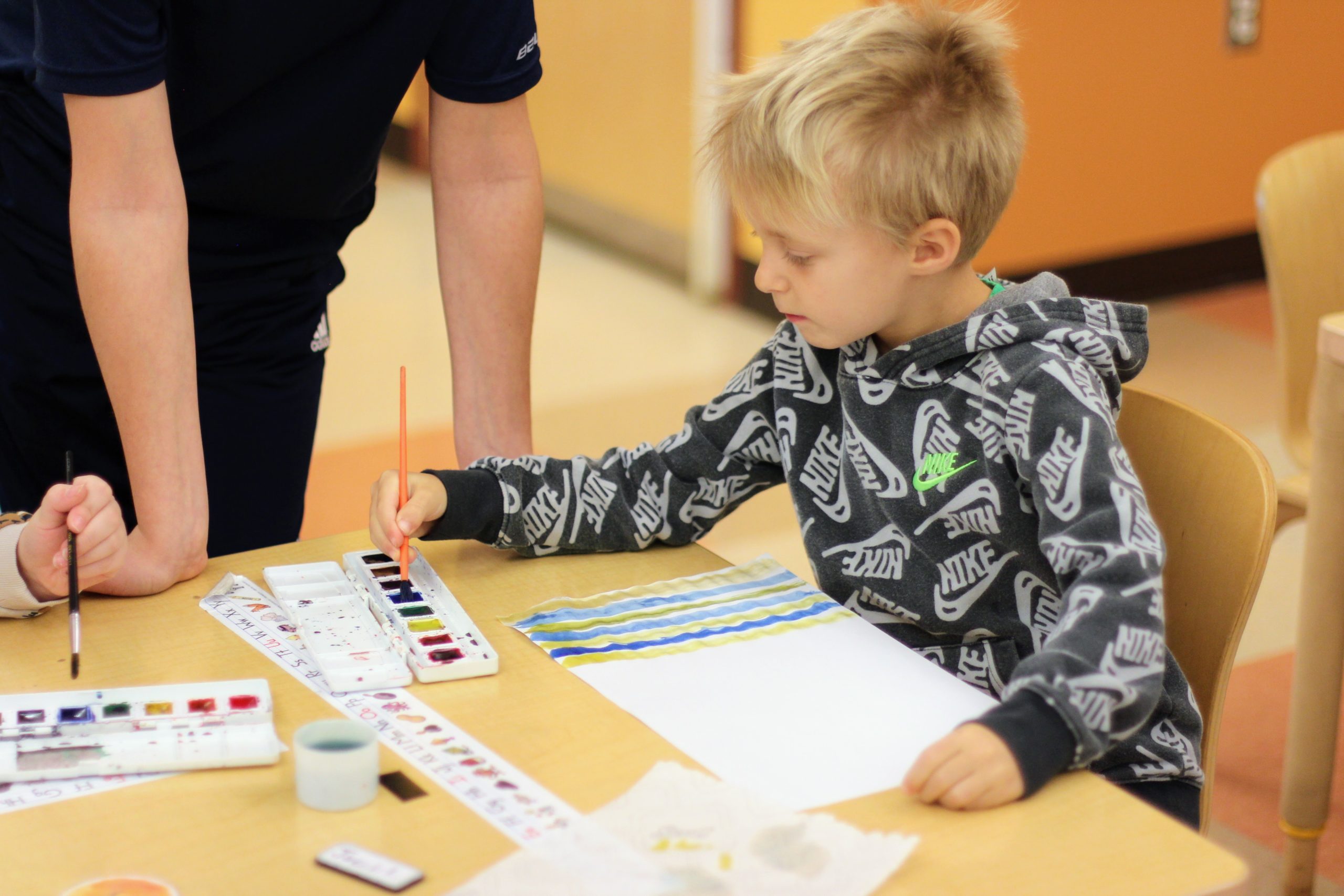
“We learned about Ukraine and the war with Russia,” added Kindergartner Jacob M. “I like learning the history, about how the Ukrainian people have to move because it’s so dangerous.”
In Grade 3, students played games to simulate the experience of those who are impacted by these issues, like object-sorting games to relate to Ukrainian refugees, or card games where only half the players knew the rules to show the frustration of having limited access to healthcare.
“People in Ukraine had to leave their houses, and they could only pack one suitcase with what’s most important,” said Grade 3 student Samantha E. As a class, each student “packed” their own suitcases with what felt most important to them from a selection of items, to understand the perspective of someone who suddenly finds themselves uprooted.
“Tamchui lets us learn about people so we can help them,” said Samantha.
“It’s kind. You’re supporting organizations to help others,” said Grade 3 student Elsa F-P. “That feels special.”
Rashi’s Tamchui initiative runs school-wide for a total of four weeks, comprising education week, meet the reps week, donation week, and closing out with a final all-school assembly. However, Middle Schoolers work weeks in advance to prepare for this keystone experience, researching and voting on a multitude of topics and organizations before whittling down to their final picks.
“We get to help organizations, learn about organizations, and then teach about them too,” said Grade 8 student Penelope C., “you get to see into people’s lives.”
“It’s important for the younger students to learn about these issues because they live in this world, they live in the world that’s facing these problems along with everyone else,” said 8th grader Maddie S.
It took hours of hard work to put together three days of lesson plans for every Lower School grade at Rashi. Middle School students worked during advisory, minyan, and at home to prepare for their time as teachers.
“[The Lower School students] are going to grow up with these issues, they’ll grow and understand them more and more as they go,” said Grade 8 student Charlotte R. “It was interesting to figure out how we could teach them in an effective way.”
“These kids will come to the Middle School and they’ll know these topics, they’ll know the issues and be able to build on it,” said Grade 8 student Benjamin A.
Penelope agreed, “We all saw how important it was.”


